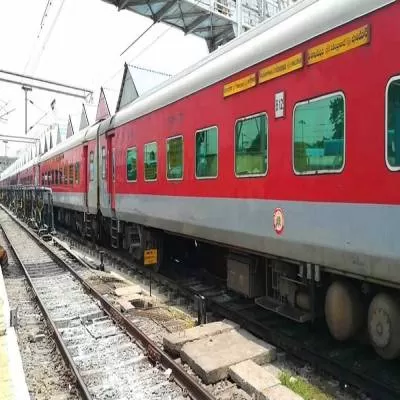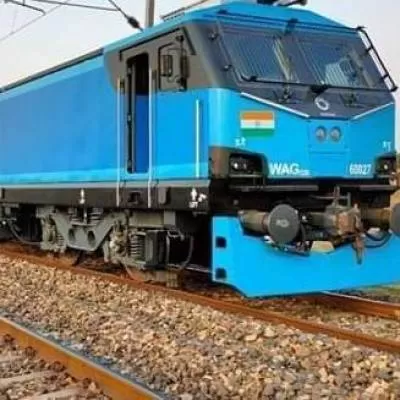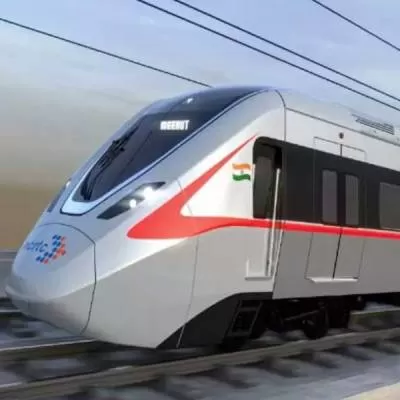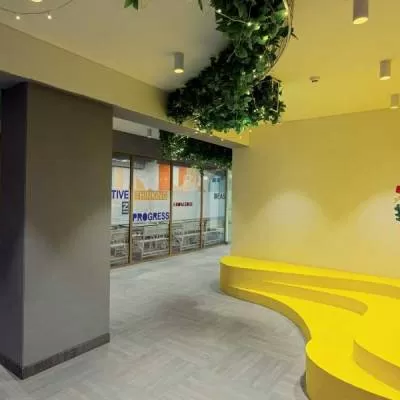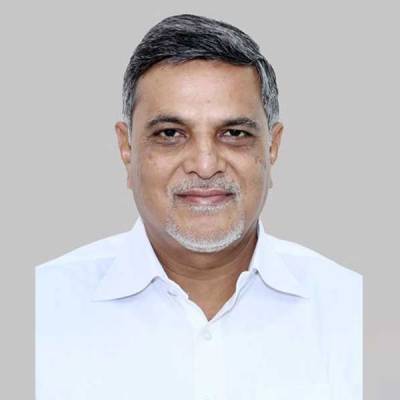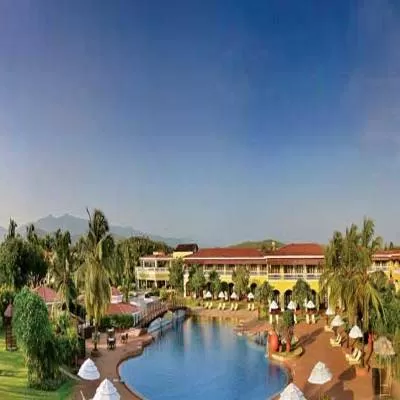- Home
- Real Estate
- Building Blocks
Building Blocks
Infrastructure encompasses the whole spectrum of vital services such as roads, railways, civil aviation, shipping, power generation and transmission, telecommunications, postal facilities and urban development. Adequate infrastructure facilities are an absolute necessity for rapid achievement of sustainable economic growth.
A key marker of developed infrastructure is the development in the construction and real estate sectors.
In India, the real estate sector is the second largest employer, second only to the agriculture sector, and is poised to grow at a phenomenal rate of 30 per cent over the next decade.
Opening the floodgates
Total infrastructure spending is expected to be 10 per cent of GDP during the Twelfth Five-Year Plan (2012-2017), up from 7.6 per cent during the previous plan (2007-2012). A focused and systematic allocation of funds towards infrastructure to the tune of $1 trillion over the next decade is expected to create a huge opportunity and potential for infrastructure development in India.
A larger number of private players have also entered the business through the public-private partnership (PPP) model. As on March 2015, projects worth $32.69 billion have been awarded through the PPP model, with as many as 165 PPP projects still under progress. During the next five years, investment through PPP is expected to be $31 billion.
The Real Estate Investment Trusts (REITs) guidelines were introduced sometime in late 2014 to provide a stable investment alternative for the real estate sector, typically a liquid dividend-paying and asset-based investment. REITs will be set up under the Indian Trusts Act 1882, and registered under SEBI (Real Estate Investment Trusts) Regulations 2014. REITs provide an option to retail investors through a regulated and transparent mechanism to participate in the growth of the Indian real estate sector, which was thus far dominated by HNIs and institutional investors. The Infrastructure Investment Trusts (InvITs) guidelines have also been set up under the aegis of SEBI, as according to the Twelfth Five-Year Plan, India requires an investment in the infrastructure sector of around Rs 65 lakh crore over the duration of 2012-2017. As the inherent nature of infrastructure assets is different from real estate assets, the infrastructure sector requires different types of disclosures, different restrictions on underlying assets, different leverage levels, etc, and therefore, separate regulations have been set out under the SEBI (Infrastructure Investment Trusts) Regulations, 2014.
Another significant boost was the opening up of the economy and providing for 100 per cent Foreign Direct Investment (FDI) in the real estate sector through the automatic route, subject to suitable regulations permitting foreign investors and institutional investors to invest in this space. This meant that foreign investors could invest funds in India, and developers and builders could raise finances through international channels, and pump finances required for major development projects requiring huge investments. The government has constantly been relaxing guidelines and procedures for investment in the real estate and infrastructure projects, thereby inviting investment and promoting India as a hub for sustainable development and investment.
The Pradhan Mantri Awas Yojana - ´Housing for All´ by 2022- aims to alleviate poverty and provide housing to all citizens, which is one of the fundamental rights enshrined in the Constitution of India.
The Centre has also introduced the Atal Mission for Rejuvenation and Urban Transformation (AMRUT), which is focused towards ensuring that every household has access to a tap with assured supply of water and a sewerage connection; increasing the amenity value of cities by developing greenery and well-maintained open spaces, and reducing pollution by switching to public transport or constructing facilities for non-motorised transport. The total funds allocated for AMRUT are Rs 50,000 crore for five years (from FY2015-16 to FY2019-20).
Mass outreach
The enactment of the Real Estate (Regulation and Development) Act, 2016 (RERA), is focused to ensure fair, transparent and affordable housing for citizens, and also provide a proper regulatory framework for developers to construct buildings and complete the projects in a time-bound manner. Many of the sections of this new enactment have been enforced, and the draft rules have been framed under RERA. This Act provides for a central regulatory body to supervise and monitor activities pertaining to construction and development, and will also be responsible for enforcing the statute and encouraging transparency and accountability on the part of developers, thereby assuring prospective flat purchasers of timely possession and durable and good quality construction of buildings and premises.
The ´Make in India´ initiative is directed towards making India a global hub, and encourages domestic as well as international companies to produce and manufacture in the country. Under this ambitious scheme, the government aims to create 100 Smart Cities and 500 AMRUT cities by inviting investment to the tune of Rs 2 trillion in the next five years. The Goods and Services (GST) Bill recently received the President´s assent and the Cabinet has notified the constitution of the GST Council, which will decide and regulate the rate of tax under the new tax regime. This will bring a much needed reform in the indirect taxes levied on various real estate transactions, which at present include two major taxes - service tax and value-added tax. GST will streamline the tax structure by levying one tax at a predetermined rate to ensure that there is uniformity and transparency at all stages of real estate transactions.
An estimated tax payable by developers at present, is anywhere between 22-25 per cent of the cost of residential units û which is directly passed onto the consumers, thus making it very expensive to purchase and own property. Once GST is fully implemented, it would significantly reduce the tax liability on real estate transactions and properties.
The Central Government also introduced the Swatch Bharat Mission in 2014, to improve the basic infrastructure and amenities in rural India, and provide sanitary and hygienic living environments, clean drinking water, and road connectivity across the country.
The Government of India launched the National Heritage City Development and Augmentation Yojana (HRIDAY) scheme on January 21, 2015, with a focus on holistic development of heritage cities. The initiative includes development of water supply, sanitation, drainage, waste management, approach roads, footpaths, streetlights, tourist conveniences, electricity wiring, landscaping and such citizen services. The BJP-led government has been proactively engaged in addressing issues at the heart of India´s economic and social development by introducing numerous measures, Acts and schemes geared towards taking a leap in the global area.
Infrastructure projects, housing, sanitation, roads, railways, electricity and construction have all been driven rigorously. REIT and InvIT guidelines have opened up avenues for attracting investments in India through foreign investments. FDI inflows in real estate and infrastructure have also been eased to permit construction and development of real estate and infrastructure projects at a much larger and grander scale.
About the author:
Prem Rajani, Managing Partner, Rajani Associates, is also the founding partner of the firm with more than 25 years of experience. His areas of specialistion include banking, finance, capital markets, structuring, private equity, and mergers and acquisitions.
Aradhana Bhansali, Partner, Rajani Associates, mostly handles the Real Estate and Trusts related practice of the Firm. She carries with her an experience of 15 years.
The government has introduced various schemes and legislations, all focused on building a strong and vibrant infrastructure sector, say PREM RAJANI and ARADHANA BHANSALI. Infrastructure encompasses the whole spectrum of vital services such as roads, railways, civil aviation, shipping, power generation and transmission, telecommunications, postal facilities and urban development. Adequate infrastructure facilities are an absolute necessity for rapid achievement of sustainable economic growth. A key marker of developed infrastructure is the development in the construction and real estate sectors. In India, the real estate sector is the second largest employer, second only to the agriculture sector, and is poised to grow at a phenomenal rate of 30 per cent over the next decade. Opening the floodgates Total infrastructure spending is expected to be 10 per cent of GDP during the Twelfth Five-Year Plan (2012-2017), up from 7.6 per cent during the previous plan (2007-2012). A focused and systematic allocation of funds towards infrastructure to the tune of $1 trillion over the next decade is expected to create a huge opportunity and potential for infrastructure development in India. A larger number of private players have also entered the business through the public-private partnership (PPP) model. As on March 2015, projects worth $32.69 billion have been awarded through the PPP model, with as many as 165 PPP projects still under progress. During the next five years, investment through PPP is expected to be $31 billion. The Real Estate Investment Trusts (REITs) guidelines were introduced sometime in late 2014 to provide a stable investment alternative for the real estate sector, typically a liquid dividend-paying and asset-based investment. REITs will be set up under the Indian Trusts Act 1882, and registered under SEBI (Real Estate Investment Trusts) Regulations 2014. REITs provide an option to retail investors through a regulated and transparent mechanism to participate in the growth of the Indian real estate sector, which was thus far dominated by HNIs and institutional investors. The Infrastructure Investment Trusts (InvITs) guidelines have also been set up under the aegis of SEBI, as according to the Twelfth Five-Year Plan, India requires an investment in the infrastructure sector of around Rs 65 lakh crore over the duration of 2012-2017. As the inherent nature of infrastructure assets is different from real estate assets, the infrastructure sector requires different types of disclosures, different restrictions on underlying assets, different leverage levels, etc, and therefore, separate regulations have been set out under the SEBI (Infrastructure Investment Trusts) Regulations, 2014. Another significant boost was the opening up of the economy and providing for 100 per cent Foreign Direct Investment (FDI) in the real estate sector through the automatic route, subject to suitable regulations permitting foreign investors and institutional investors to invest in this space. This meant that foreign investors could invest funds in India, and developers and builders could raise finances through international channels, and pump finances required for major development projects requiring huge investments. The government has constantly been relaxing guidelines and procedures for investment in the real estate and infrastructure projects, thereby inviting investment and promoting India as a hub for sustainable development and investment. The Pradhan Mantri Awas Yojana - ´Housing for All´ by 2022- aims to alleviate poverty and provide housing to all citizens, which is one of the fundamental rights enshrined in the Constitution of India. The Centre has also introduced the Atal Mission for Rejuvenation and Urban Transformation (AMRUT), which is focused towards ensuring that every household has access to a tap with assured supply of water and a sewerage connection; increasing the amenity value of cities by developing greenery and well-maintained open spaces, and reducing pollution by switching to public transport or constructing facilities for non-motorised transport. The total funds allocated for AMRUT are Rs 50,000 crore for five years (from FY2015-16 to FY2019-20). Mass outreach The enactment of the Real Estate (Regulation and Development) Act, 2016 (RERA), is focused to ensure fair, transparent and affordable housing for citizens, and also provide a proper regulatory framework for developers to construct buildings and complete the projects in a time-bound manner. Many of the sections of this new enactment have been enforced, and the draft rules have been framed under RERA. This Act provides for a central regulatory body to supervise and monitor activities pertaining to construction and development, and will also be responsible for enforcing the statute and encouraging transparency and accountability on the part of developers, thereby assuring prospective flat purchasers of timely possession and durable and good quality construction of buildings and premises. The ´Make in India´ initiative is directed towards making India a global hub, and encourages domestic as well as international companies to produce and manufacture in the country. Under this ambitious scheme, the government aims to create 100 Smart Cities and 500 AMRUT cities by inviting investment to the tune of Rs 2 trillion in the next five years. The Goods and Services (GST) Bill recently received the President´s assent and the Cabinet has notified the constitution of the GST Council, which will decide and regulate the rate of tax under the new tax regime. This will bring a much needed reform in the indirect taxes levied on various real estate transactions, which at present include two major taxes - service tax and value-added tax. GST will streamline the tax structure by levying one tax at a predetermined rate to ensure that there is uniformity and transparency at all stages of real estate transactions. An estimated tax payable by developers at present, is anywhere between 22-25 per cent of the cost of residential units û which is directly passed onto the consumers, thus making it very expensive to purchase and own property. Once GST is fully implemented, it would significantly reduce the tax liability on real estate transactions and properties. The Central Government also introduced the Swatch Bharat Mission in 2014, to improve the basic infrastructure and amenities in rural India, and provide sanitary and hygienic living environments, clean drinking water, and road connectivity across the country. The Government of India launched the National Heritage City Development and Augmentation Yojana (HRIDAY) scheme on January 21, 2015, with a focus on holistic development of heritage cities. The initiative includes development of water supply, sanitation, drainage, waste management, approach roads, footpaths, streetlights, tourist conveniences, electricity wiring, landscaping and such citizen services. The BJP-led government has been proactively engaged in addressing issues at the heart of India´s economic and social development by introducing numerous measures, Acts and schemes geared towards taking a leap in the global area. Infrastructure projects, housing, sanitation, roads, railways, electricity and construction have all been driven rigorously. REIT and InvIT guidelines have opened up avenues for attracting investments in India through foreign investments. FDI inflows in real estate and infrastructure have also been eased to permit construction and development of real estate and infrastructure projects at a much larger and grander scale. About the author: Prem Rajani, Managing Partner, Rajani Associates, is also the founding partner of the firm with more than 25 years of experience. His areas of specialistion include banking, finance, capital markets, structuring, private equity, and mergers and acquisitions. Aradhana Bhansali, Partner, Rajani Associates, mostly handles the Real Estate and Trusts related practice of the Firm. She carries with her an experience of 15 years.


